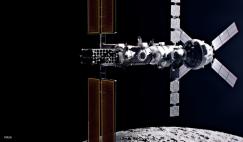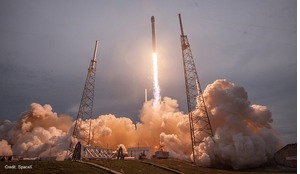The world has become all too familiar with images of mass refugee migration - displaced citizens fleeing regional conflicts in search of basic human security. Such images depict supremely vulnerable populations moving across the landscape and attempting to pass through state borders to seek refuge.
Some global news outlets use satellite images as illustrations but a close look at some of the images reveals an interesting phenomenon: whilst large groups of people are visible, unless there is a specific infrastructure, the borders that serve to contain them are imperceptible.
Whilst satellite imagery can be used to relieve suffering in war-torn areas of the world many in the legal profession are concerned about what this means, as it is still a relatively new area of international humanitarian law.
International space law, though not silent, says remarkably little about how we should use these images to ameliorate such tragedies.
Though it certainly anticipates the use of space technology for humanitarian purposes, as yet it has failed to categorise law in such a way that gives countries affirmative duties to employ space technology to mitigate human suffering.
The situation is likely to be exacerbated by anthropogenic climate change as it leads to the displacement of people and communities. In this timely ‘conversational’ article, PJ Blount and Michael Dodge - who both presented papers during the 2017 International Astronautical Congress (IAC) session on the plight of refugees - examine the opportunities and challenges of using space-based data for humanitarian causes.
Possibly one of the most challenging legal concepts in the field of space law is the so-called concept of ‘benefit sharing’ found in Article I of the Outer Space Treaty (OST). Specifically, this provision says that state parties to the treaty should use outer space “for the benefit and in the interests of all countries”.














